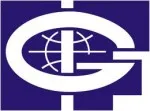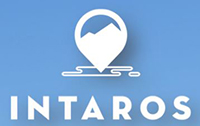
The Institute of Geophysics, Polish Academy of Sciences (IGPAN) is a scientific institution representing the main stream of Polish basic research in Earth sciences. It is the only institution in Poland that performs monitoring of geophysical fields in seismology, geomagnetism and selected areas of atmospheric physics. The Institute’s research broadly covers the following scientific fields: seismology, geomagnetism, earth’s interior dynamics, physics of the atmosphere, hydrology and environmental hydraulics, polar and marine research. Now the Institute employed 179 persons (159 full-time and 20 part-time). The staff consisted of 69 scientists, including 13 professors and 19 associate professors. The rest of personnel included 58 engineers and technicians (mostly engaged in geophysical observations), clerks and service workers.
The Department of Polar and Marine Research conducts the Polish polar research using the Polish Polar Station located near the Hornsund Fjord at Svalbard. The Polar Research Department staff consists of 1 senior researcher, 5 doctors, 1 assistant, 5 PhD students, 1 technical worker and 3 logistic support staff.
Profile relating to the project: IGF is a multidisciplinary organization engaged in advanced research, teaching and service provision in cutting-edge geophysical sciences and is one of the largest research center in Poland working towards understanding and monitoring the environment. The Polish Polar Station at Svalbard is the oldest station, which performs monitoring in this part of Arctic. IGF PAS and Polish Polar Station at Svalbard has extensive experience (60 years) in operating an isolated self-sustained research station (Hornsund), whilst maintaining close cooperation with the Norwegian authorities.The Institute of Geophysics coordinates actions of Polish Roadmap for Infrastructure PolarPOL.
Role in the project
WP2: The Hornsund Polish Polar Station in Svalbard provides both direct on-line as well as post-processed data from a number of monitoring systems to international data bases. Our experience could be used to improve systems of collecting, processing and providing various types of data.
WP7: The Institute of Geophysics, PAS has the experience (as a leader of already carried out educational projects for schools and other public information projects), so it could bring in such elements as:
Creating bigger interest in mathematical-natural science/informatics-technical science/ foreign languages thanks to diametrical change of previous teaching formulas. The rise of skills connected with identifying and defining research problems and using research methods in the range of science owing to pupils taking part in the real research process.
Instytut Geofizyki Polskiej Akademii Nauk
Institute of Geophysics Polish Academy of Sciences
ul. Księcia Janusza 64
01-452 Warszawa
Poland
